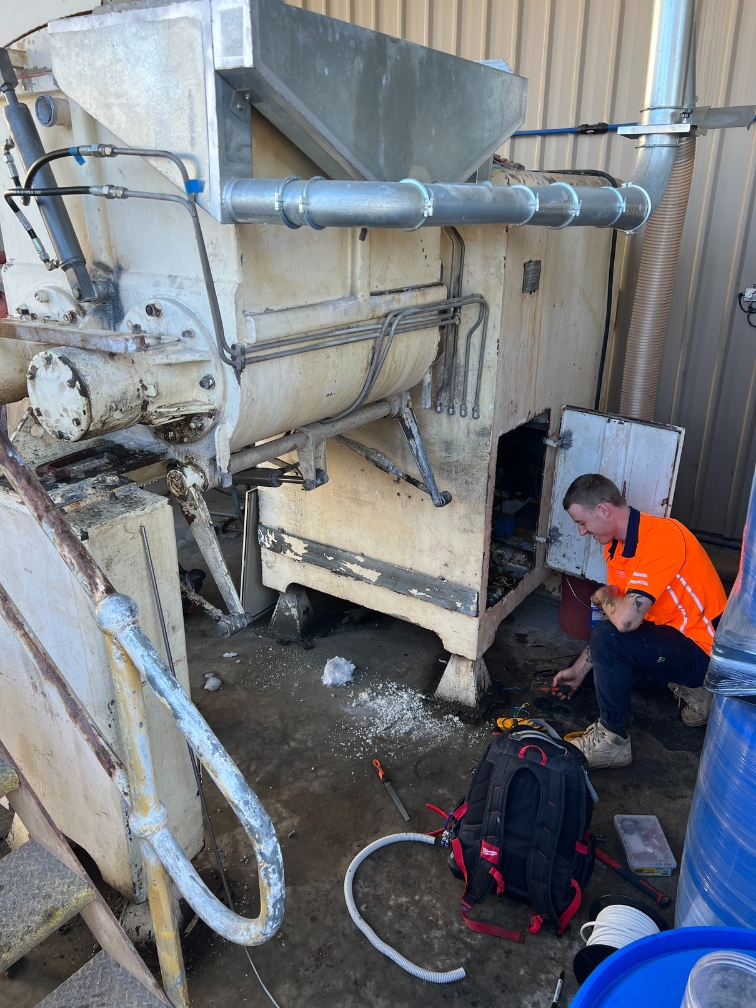Industrial Electrical Safety: Minimising Downtime and Hazards

Comprehensive Approach to Industrial Electrical Safety
In today’s industrial facilities, maintaining reliable electrical systems is important for operational efficiency and workplace safety. Unplanned downtime caused by electrical faults can lead to costly production delays, damaged equipment, and increased safety risks. Industrial electrical safety practices, including preventative maintenance and routine inspections, play a vital role in reducing downtime and ensuring compliance with workplace safety standards.
In this blog, we will guide you through the essential strategies and best practices for industrial electrical safety. From preventative maintenance and grounding techniques to staff training and system audits, we will show how your facility can minimise downtime, protect employees, and maintain optimal productivity while complying with Australian electrical safety regulations.
Understanding Preventive Electrical Maintenance
Preventive electrical maintenance is the practice of regularly inspecting, testing, and servicing electrical systems to identify and resolve potential issues before they escalate into critical failures. In an industrial setting, this could include:
- Switchboards and distribution panels
- Circuit breakers and fuses
- Motors, drives, and control systems
- Electrical cabling and connections
By adopting a preventative approach, factories can reduce unplanned outages, improve safety, and extend the lifespan of critical equipment.
Top Strategies to Minimise Downtime and Electrical Hazards
Minimising downtime and electrical hazards requires a proactive strategy that integrates maintenance, training, modern technology, and compliance with safety standards. Here are the most effective strategies.
1. Comprehensive Staff Training
Well-trained personnel are first line of defence against electrical hazards. Staff trained in industrial electrical safety can:
- Recognise faulty equipment and unsafe conditions before they escalate.
- Correctly follow lockout/tagout (LOTO) procedures to prevent accidental energisation.
- Respond safely to electrical emergencies.
2. Routine Electrical Inspections
Regular inspections identify issues before they become emergencies. A structured inspection schedule reduces the likelihood of unexpected failures and ensures equipment operates reliably. Consider these approaches:
- Infrared (Thermal) Inspections: Detect hotspots, loose connections, and overloaded circuits invisible to the naked eye.
- Visual Inspections: Examine wiring, panels, and equipment for wear, corrosion, or damage.
- Functional Testing: Verify that protective devices, alarms, and systems operate correctly.
3. Grounding and Bonding
Grounding reduces the risk of electrical shocks and equipment damage. There are several grounding methods:
- Solid Grounding: Provides a direct path for fault current, ensuring safety in the event of a short circuit.
- Resistance Grounding: Limits fault currents to safe levels, reducing potential equipment damage.
- High-Resistance Grounding (HRG): Maintains continuous operation while safely detecting faults in critical systems.
4. Equipment Labelling and Documentation
Clear labelling and documentation simplify maintenance, reduce mistakes, and improve emergency response times:
- Labelling: Panels, circuits, and cabling should be clearly marked to prevent confusion.
- Documentation: Maintain up-to-date single-line diagrams, inspection records, and maintenance logs, whether digital or physical.
Accurate records also help identify recurring issues, support regulatory compliance, and improve overall electrical system management.
5. Modernization and System Upgrades
Outdated electrical systems are more prone to failure and inefficiency. A modernisation program can:
- Replaces unsafe or inefficient components
- Adds smart monitoring for predictive maintenance
- Improves energy efficiency and operational safety
Check our switchboard upgrade services for modern, safe, and efficient industiral electrical systems.
6. Electrical Studies and Risk Assessments
Specialised studies are essential for managing risk and ensuring compliance:
- Load Flow Studies: Analyse the distribution of electrical loads, preventing overloading and optimising performance.
- Arc Flash Studies: Identify arc flash hazards and provide strategies to protect workers and equipment.
Regular risk assessments allow facilities to proactively address hazards and remain compliant with safety standards.
The High Costs of Reactive Repairs
Relying on reactive electrical repairs can be expensive and dangerous. Emergency repairs often:
- Extend downtime due to unplanned production halts
- Increase safety risks for personnel
- Result in higher repair costs and potential regulatory penalties
Preventive maintenance addresses these challenges by identifying potential faults early, reducing both financial and operational risks.
Key Benefits of Proactive Electrical Safety Programs
Implementing a structured electrical safety program provides measurable advantages:
- Enhanced Workplace Safety: Early detection of electrical faults prevents fires, shock hazards, and equipment damage.
- Reduced Downtime: Proactive maintenance ensures systems run smoothly, preventing unexpected interruptions.
- Energy Efficiency: Properly maintained electrical systems operate more efficiently, lowering energy costs.
- Compliance Assurance: Regular maintenance and inspections keep your factory aligned with WHS regulations and electrical safety standards.
Conclusion
Industrial electrical safety is more than just a compliance requirement; it is essential for protecting employees, maintaining equipment reliability, and minimising costly downtime. By implementing preventive maintenance, conducting regular inspections, ensuring proper grounding, and modernising outdated systems, industrial facilities can proactively address potential hazards before they escalate.
Take control of your facility’s electrical safety today with Aquila Electrical. Our expert team can provide comprehensive electrical audits, preventative maintenance plans, and staff training programs tailored to your operations. Contact us now to schedule a consultation and safeguard your industrial systems run safely, efficiently, and without unnecessary interruptions.
📞 Call us on 0488 551 630
📍 Based in Hove, SA 5048









